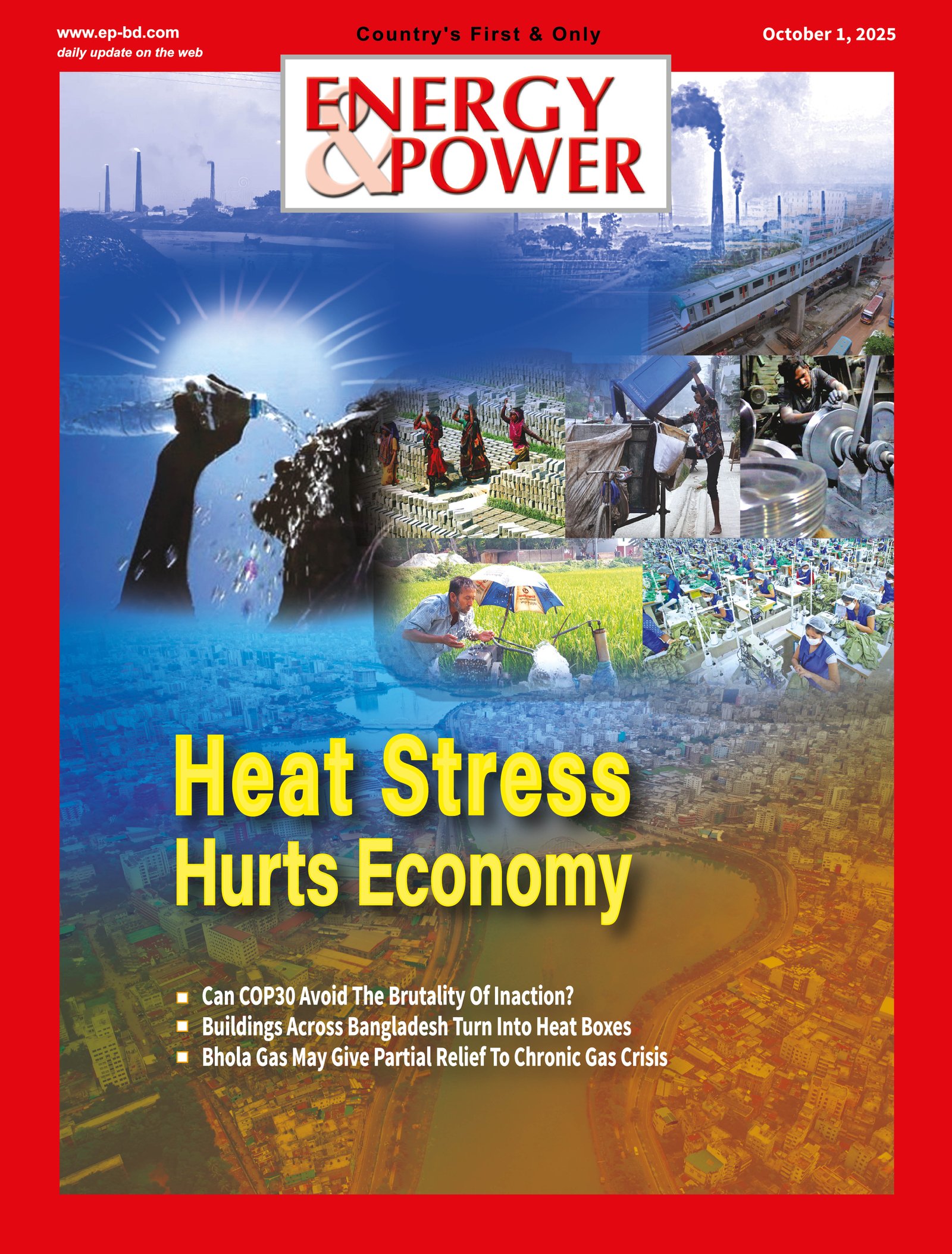
Download Link for Energy & Power Vol 23 Issue 08 (October 1, 2025) as PDF/userfiles/EP_23_8.pdf
Step outside in Dhaka today, and the city feels less like a home and more like an oven. What was once dismissed as “just the weather” is now an economic and social crisis. A new World Bank report puts a number on the damage: Bangladesh loses about Tk 2.1 trillion every year to rising heat, with 250 million workdays gone in 2024 alone. Behind those figures are workers too sick to show up and families struggling with medical bills. This isn’t just about global climate change; it’s about how we build and govern our cities. Unplanned construction, disappearing wetlands, and air thick with pollution are turning Dhaka into a heat chamber. Buildings designed like sealed boxes trap heat inside, forcing residents to use more air conditioners, which only adds to the problem by raising energy demand and carbon emissions. What makes this worse is that Bangladesh has the policies and commitments on paper. It has even been praised internationally for climate action. But implementation is weak, and political will is lacking. The solutions are clear: cleaner fuels, better waste management, protecting green spaces, and enforcing urban planning laws. What’s missing is urgency. As elections approach, citizens must demand that leaders take heat and air pollution seriously.
Dhaka’s temperature has risen sharply, worsened by vanishing wetlands and reckless development. Experts warn that weak governance and a lack of enforcement of environmental policies are deepening the crisis. Without urgent action, heat stress and air pollution will severely hinder Bangladesh’s progress.
For E-Book: https://enp.tiny.us/Oct1Y25



